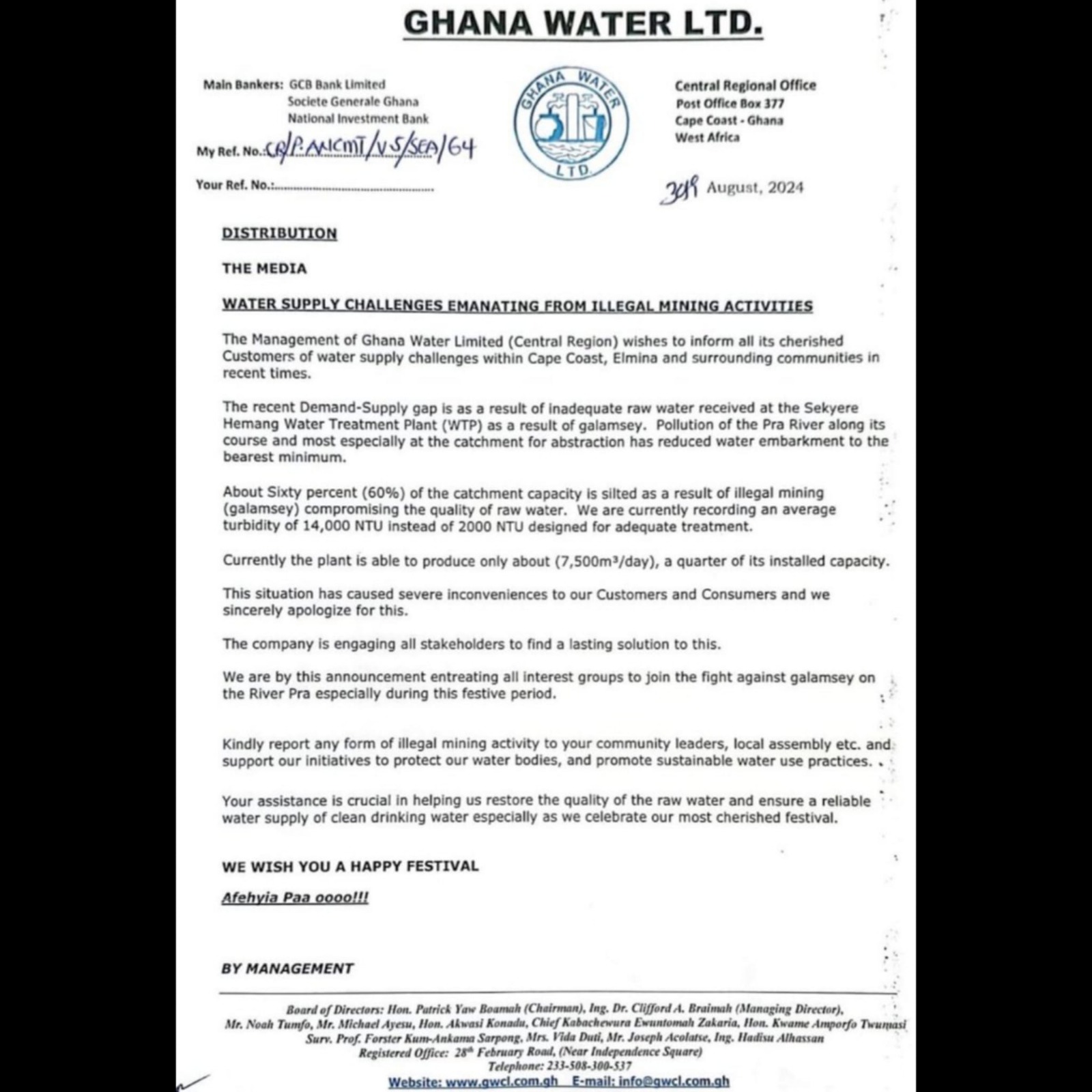
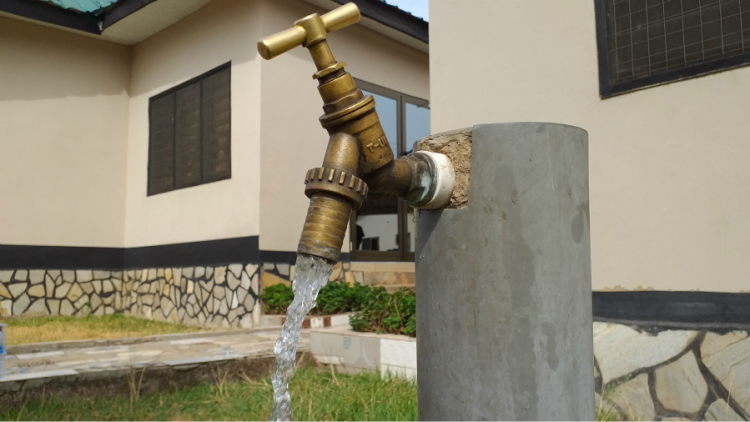
The Ghana Water Company Limited (GWCL) has issued an apology to residents of Cape Coast, Elmina, and surrounding areas for the recent erratic water supply.
In a statement released on Saturday, 31 August 2024, the company attributed the disruptions in water supply to the activities of illegal miners, commonly known as “galamsey,” which have severely polluted the River Pra.
The management explained, “About sixty percent (60%) of the catchment capacity is silted as a result of illegal mining, compromising the quality of the raw water. We are currently recording an average turbidity of 14,000 NTU instead of 2,000 NTU designed for adequate treatment.”
GWCL explained that the pollution caused by galamsey operations has drastically reduced the amount of raw water available for treatment. As a result, the company is currently producing only about 7,500 cubic metres of water per day, a mere quarter of its installed capacity. This shortfall has led to significant inconvenience for residents who rely on the company for their daily water needs.
“Currently, the plant is able to produce only about 7,500m³/day, a quarter of its installed capacity. This situation has caused severe inconveniences to our customers and consumers, and we sincerely apologise for this,” the press release stated.
Ghana Water Company calls for urgent action to fight galamsey
The GWCL has therefore called on all stakeholders to join forces in the fight against galamsey to restore the quality of water in the River Pra and ensure a stable water supply for the affected areas.
“The company is engaging all stakeholders to find a lasting solution to this. We are by this announcement entreating all interest groups to join the fight against galamsey on the River Pra, especially during this festive period. Kindly report any form of illegal mining activity to your community leaders, local assembly, etc., and support our initiatives to protect our water bodies and promote sustainable water use practices.”

The GWCL has assured customers that it is working tirelessly to mitigate the impact of the water supply disruptions and is exploring alternative sources of raw water to augment supply.
Read Full Story
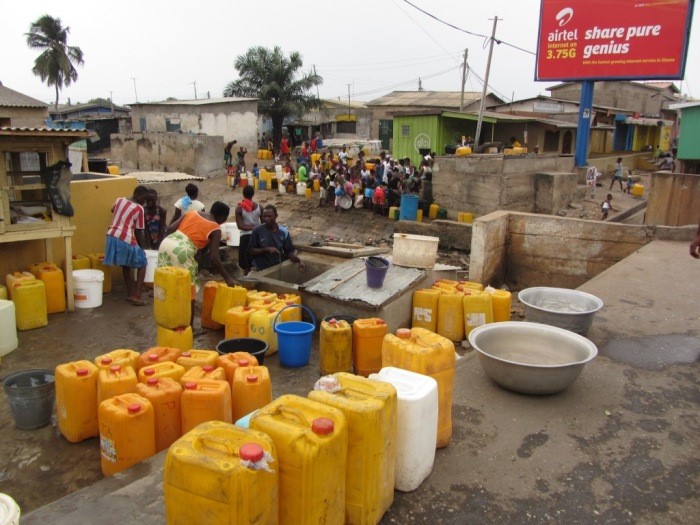

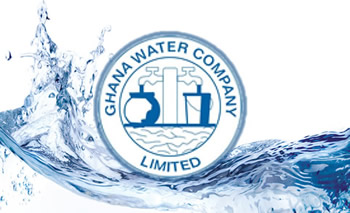



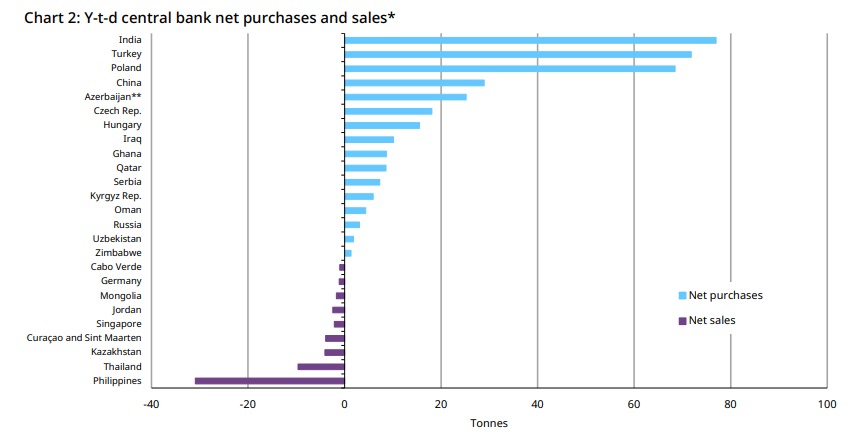





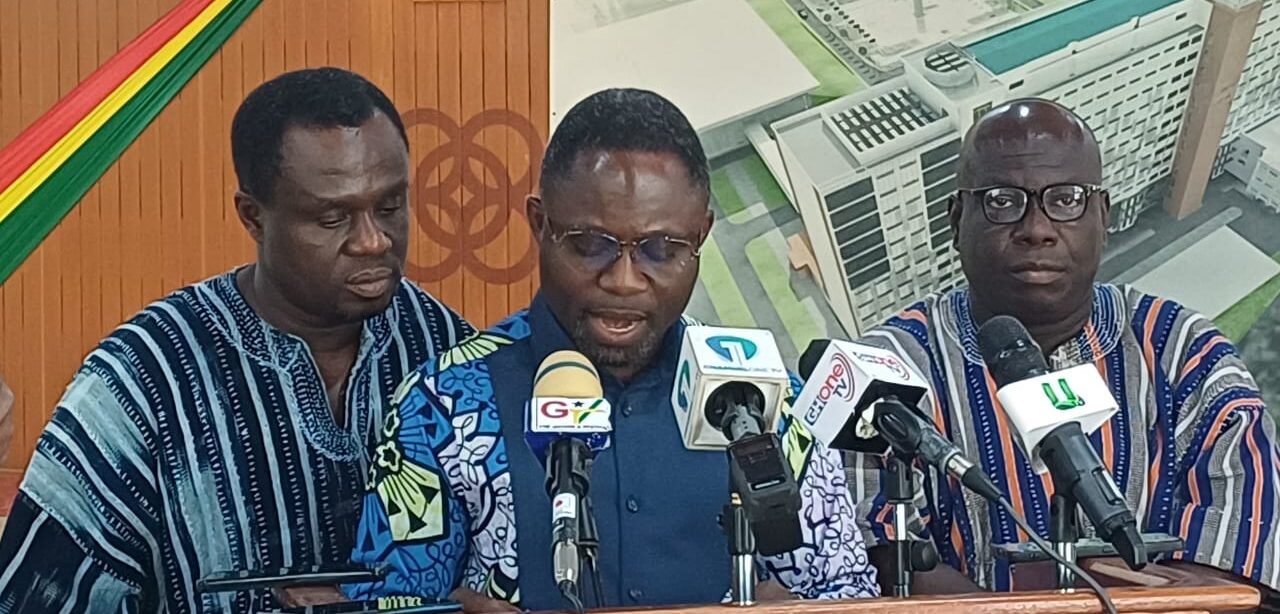


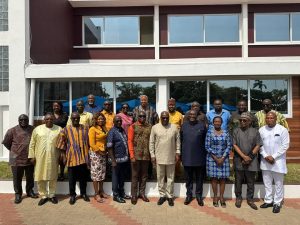

Facebook
Twitter
Pinterest
Instagram
Google+
YouTube
LinkedIn
RSS